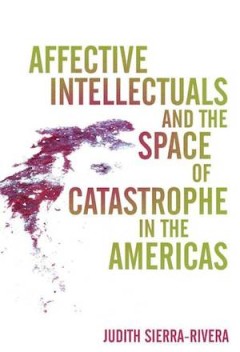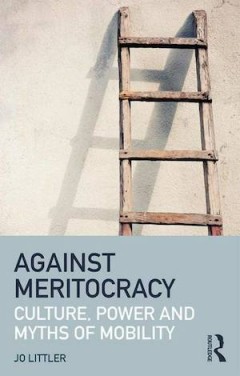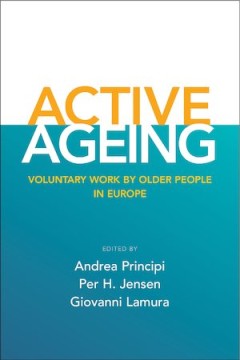Filter by

'Toward a Pragmatist Sociology: John Dewey and the Legacy of C. Wright Mills
In Toward a Pragmatist Sociology, Robert Dunn explores the relationship between the ideas and principles of philosopher and educator John Dewey and sociologist C. Wright Mills to provide a philosophical and theoretical foundation for the development of a critical and public sociology. Dunn recovers an intellectual and conceptual framework for transforming sociology into a more substantive, comp…
- Edition
- -
- ISBN/ISSN
- 9781439914595
- Collation
- -
- Series Title
- -
- Call Number
- 300

Asexual Erotics: Intimate Readings of Compulsory Sexuality
Asexual Erotics: Intimate Readings of Compulsory Sexuality attends to the silence around asexuality in queer, feminist, and lesbian thinking from the late 1960s to the present. Drawing on the knowledge generated by asexual community, activism, and scholarship, Ela Przybylo gives us the first queer and feminist monograph on asexuality
- Edition
- -
- ISBN/ISSN
- 9780814214046
- Collation
- -
- Series Title
- -
- Call Number
- 300

Affective Intellectuals and the Space of Catastrophe in the Americas
Most importantly, the book shows how literature constitutes an alternative public sphere for Black people. In a society largely controlled by white supremacist actors and institutions, Black authors have conjured fiction into a space where hard questions can be asked and answered and where the work of combatting collective, racist suppression can occur without replicating oppressive hierarchies…
- Edition
- -
- ISBN/ISSN
- 9780814213780
- Collation
- -
- Series Title
- -
- Call Number
- 300

Debating Humanity: Towards a Philosophical Sociology
The question 'what is a human being?' remains one of the most vexing intellectual tasks. Debating Humanity reconstructs how contemporary sociologists and philosophers – among others, Arendt, Taylor, Archer and Boltanski – understand the key anthropological skills that define our shared membership to the human species.
- Edition
- -
- ISBN/ISSN
- 9781107129337
- Collation
- -
- Series Title
- -
- Call Number
- 300

Alternative Economies and Spaces : New Perspectives for a Sustainable Economy
The volume entails a collection of contributions by leading scholars (Raymond Bryant, Michael K. Goodman, Benjamin Huybrechts, Andrew E.G. Jonas, Roger Lee, Peter North, and Katinka Weber) concerned with alternative modes of economic and social exchange. The cases addressed in these contributions – including credit unions, alternative currencies, sustainable consumption, and social enter…
- Edition
- -
- ISBN/ISSN
- 9783837624984
- Collation
- -
- Series Title
- -
- Call Number
- -

American Sociology and Holocaust Studies The Alleged Silence and the Creatio…
Filled with new elements that challenge common scholarly theses, this book acquaints the reader with the “Jewish problem” of sociology and provides what this academic discipline urgently needs: a one-volume history of the Sociology of the Holocaust. The story of why and how sociologists as well as the schools of sociological thought came to confront the Holocaust has never been entirely tol…
- Edition
- -
- ISBN/ISSN
- 9781644696637
- Collation
- -
- Series Title
- -
- Call Number
- -

Against Meritocracy: Culture, power and myths of mobility
In this book Jo Littler argues that meritocracy is the key cultural means of legitimation for contemporary neoliberal culture – and that whilst it promises opportunity, it in fact creates new forms of social division. Against Meritocracy is split into two parts. Part I explores the genealogies of meritocracy within social theory, political discourse and working cultures. It traces the dramati…
- Edition
- -
- ISBN/ISSN
- 9781138889552
- Collation
- -
- Series Title
- -
- Call Number
- -

Active ageing
In this topical book older people's volunteering is studied in eight European countries at the structural, macro, meso and micro levels. Overall it highlights how different interactions between the levels facilitate or hinder older people's inclusion in voluntary work and makes policy suggestions for an integrated strategy.
- Edition
- -
- ISBN/ISSN
- 9781447307204
- Collation
- -
- Series Title
- -
- Call Number
- -

A Post-Neoliberal Era in Latin America? Revisiting cultural paradigms
The failure of a number of programmes and ongoing conflicts between neoliberal and post-neoliberal forces have resulted in growing social instability in Latin America. This book examines cultural responses to this instability. It looks at a wide range of cultural forms, such as literature, underground cinema, street fairs and self-help books to explore how Latin Americans construct subjectiviti…
- Edition
- -
- ISBN/ISSN
- 9781447343943
- Collation
- -
- Series Title
- -
- Call Number
- -

A People Passing Rude British Responses to Russian Culture
The essays in this stimulating collection attest to the scope and variety of Russia’s influence on British culture. They move from the early nineteenth century—when Byron sent his hero Don Juan to meet Catherine the Great, and an English critic sought to come to terms with the challenge of Pushkin—to a series of Russian-themed exhibitions at venues including the Crystal Palace and Earls C…
- Edition
- -
- ISBN/ISSN
- 9781909254121
- Collation
- -
- Series Title
- -
- Call Number
- -
 Computer Science, Information & General Works
Computer Science, Information & General Works  Philosophy & Psychology
Philosophy & Psychology  Religion
Religion  Social Sciences
Social Sciences  Language
Language  Pure Science
Pure Science  Applied Sciences
Applied Sciences  Art & Recreation
Art & Recreation  Literature
Literature  History & Geography
History & Geography